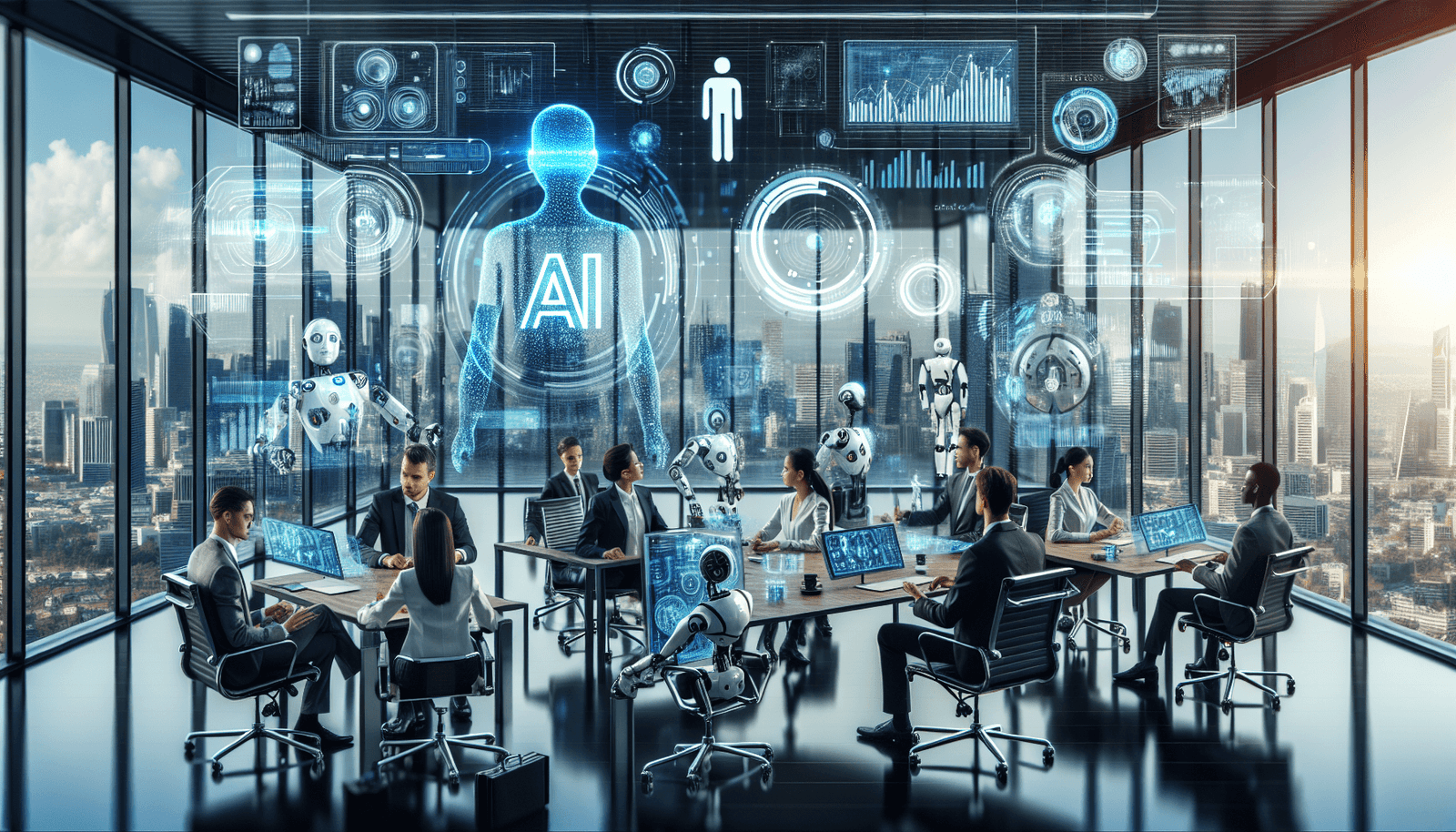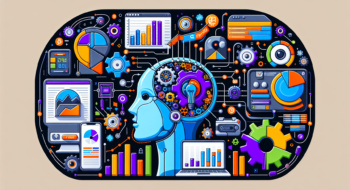Artificial Intelligence (AI) has rapidly transformed from a niche technological concept into a driving force reshaping industries and everyday life. The rise of AI presents unprecedented opportunities and challenges, influencing everything from business processes to personal interactions. As organizations harness advanced algorithms and machine learning to optimize efficiency, enhance customer experiences, and spur innovation, understanding this evolution becomes crucial. In this exploration of AI’s ascent, we’ll delve into its impact on various sectors and the implications for the future workforce and society at large.
The Surge of AI: Understanding Its Impact
Artificial Intelligence is not merely a technological trend; it is redefining our professional landscape. The integration of AI across sectors is observable in production lines, customer service platforms, and even creative domains. For businesses, Artificial Intelligence introduces a framework for automation, enabling companies to operate more efficiently and reduce operational costs. In fact, organizations employing AI can see productivity gains of 40% or more, offering them a competitive edge in a fast-paced marketplace.
AI is also reshaping consumer interactions. Chatbots can address customer queries at lightning speed, while recommendation algorithms personalize shopping experiences on platforms like Amazon and Netflix. These interactions are not only more efficient but tailored to individual preferences, enhancing customer satisfaction. Understanding these various impacts is crucial for leadership teams looking to stay ahead.
Strategies for Managing AI Growth
With the rapid evolution of AI, companies must adopt strategic approaches to effectively manage its growth. Here are key strategies to consider:
- Develop a Clear AI Strategy: Organizations need a well-defined strategy that aligns AI initiatives with overall business goals. This means identifying areas where AI can add value—whether it’s streamlining operations or enhancing customer engagement.
- Invest in Continuous Learning: As AI technology evolves, education is paramount. Encourage upskilling and reskilling within the organization to ensure employees are equipped to work alongside AI tools. Neyrotex.com offers valuable insights into training opportunities for optimizing AI utilization.
- Implement Governance and Ethics: As AI grows more complex, implementing governance structures to oversee its ethical use is vital. An ethical framework helps avoid biases in AI algorithms and reinforces a commitment to transparency.
- Collaborate and Partner: Building partnerships with AI experts and technology firms can harness specialized knowledge. Collaborations lead to innovative solutions and broaden perspectives within the organization.
- Focus on Data Management: Successful Artificial Intelligence applications depend on high-quality data. Investing in robust data management practices ensures that the data feeding AI systems is accurate, up-to-date, and relevant.
Technology Trends Driving
Several technological advancements are accelerating the growth of Artificial – Intelligence. These include:
- Machine Learning and Deep Learning: These AI subsets enhance the ability of machines to learn from data, improving accuracy and predictive capabilities.
- Natural Language Processing (NLP): NLP is revolutionizing how machines understand and respond to human language, facilitating advanced chatbots and sentiment analysis.
- Computer Vision: This technology allows machines to interpret and make decisions based on visual input, expanding applications in sectors like healthcare and security.
- Robotic Process Automation (RPA): RPA automates repetitive tasks, freeing up human labor for more complex activities.
The Future Workforce in an AI-Driven Era: Preparing for Change
As we move deeper into an era shaped by artificial intelligence (AI), understanding its profound impact on the workforce is crucial. While AI and automation are poised to transform various industries, concerns about job displacement are balanced by the creation of new opportunities. AI technology is expected not only to automate repetitive tasks but also to give rise to innovative roles that did not previously exist. Research suggests that by 2030, AI could generate approximately 133 million new job roles worldwide, even as around 75 million positions may be displaced. This shift emphasizes the importance of adaptabilit y, with upskilling and lifelong learning becoming critical strategies for workforce resilience. As traditional roles evolve or fade, a proactive approach to acquiring relevant technical and cognitive skills will empower workers to stay competitive and embrace AI as an asset rather than a threat.
Industries like healthcare, finance, and logistics are already seeing how AI can streamline operations and boost productivity, creating demand for roles focused on AI management, data analysis, and ethical oversight. This shift highlights the importance of forward-thinking educational policies, company-led training programs, and governmental support in fostering a workforce ready for an AI-driven future. Embracing this change through continuous learning will ultimately define success in the rapidly advancing landscape of AI innovation.
Roles in Demand
The emergence of AI is resulting in a new set of skills becoming in demand:
- Data Analysts and Scientists: Professionals who can extract insights from large datasets are becoming invaluable.
- AI Ethics Specialists: As organizations prioritize ethical Artificial Intelligence, roles focused on creating ethical frameworks and policies will be necessary.
- Automation Experts: Those who can effectively integrate Artificial Intelligence technologies into existing workflows will be highly sought after.
Embracing the Change
Global Trends in AI Regulation
To fully unlock the transformative potential of Artificial Intelligence (AI) growth, organizations must cultivate an environment that values innovation and embraces change at every level. This involves encouraging a mindset of experimentation, where failures are seen not as setbacks but as valuable learning opportunities that drive progress. Leaders should support initiatives that allow teams to explore novel ideas, fostering a growth-oriented culture that rewards curiosity and resilience. Additionally, prioritizing diversity within teams is essential. Research consistently shows that diverse teams fuel innovation, bringing varied perspectives that expand creativity and problem-solving capabilities. By integrating people with different backgrounds, experiences, and viewpoints, organizations can create more inclusive AI solutions that cater to a broader, more global audience. Such a multifaceted approach ensures that AI technologies are developed and applied in ways that are socially responsible, ethical, and attuned to the needs of diverse communities, ultimately contributing to a more equitable and impactful AI-driven future.
Real-World Success Stories
Insights into successful AI integration can inspire companies on their journeys by showcasing how AI can transform industries and improve outcomes:
IBM’s Watson: Watson’s utilization in healthcare has demonstrated the transformative potential of Artificial-Intelligence in diagnostics. By analyzing vast amounts of patient data, Watson assists doctors in identifying diseases more accurately and efficiently, leading to quicker and more effective treatment plans. Additionally, Watson’s AI capabilities have expanded into fields such as oncology and genomics, providing personalized treatment recommendations and aiding in complex medical decision-making.
Amazon’s Recommendation Engine: By leveraging Artificial-Intelligence to deliver personalized recommendations, Amazon has not only enhanced customer experiences but also driven significant sales growth. AI-based recommendation algorithms analyze customer behavior and preferences, offering tailored product suggestions that increase conversion rates and customer satisfaction. This targeted approach has made Amazon a leader in e-commerce innovation.
Google’s Artificial Intelligence in Search: Through continuous improvements in its search algorithms, Google has placed AI at the forefront of how we access information online. AI-enhanced search processes now better understand user intent and context, providing more relevant and accurate search results. Google’s Artificial-Intelligence applications also extend to image recognition, natural language processing, and predictive text, making information retrieval faster and more intuitive for users worldwide.
Continuous Improvement and Adaptation
In conclusion, as AI continues to rise and become integral to various aspects of our lives, organizations need to adopt a proactive stance in managing its growth. By implementing thoughtful strategies, driving continuous learning, and adapting to global regulatory landscapes, businesses can leverage the power of AI while navigating potential challenges. For additional resources on effectively managing AI growth and exploring its impact further, check out Neyrotex.com for expert insights.
As we stand on the precipice of what Artificial-Intelligence could mean for our future, remember that the growth we cultivate today will shape the world we live in tomorrow. Let’s harness this wave of innovation together, embarking on a journey filled with promise and opportunities!






